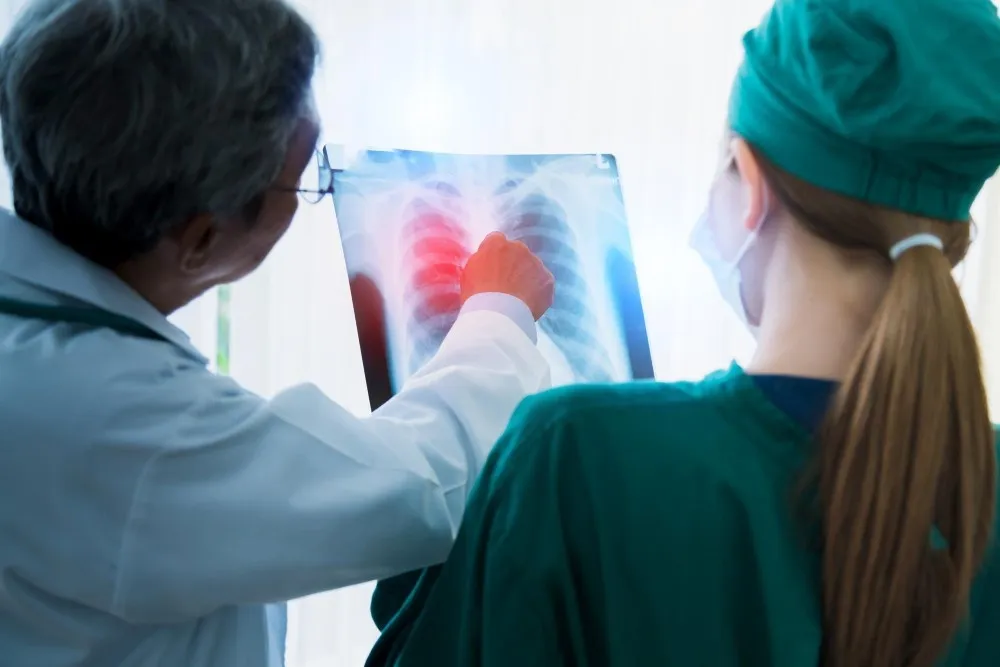This post would be our contribution towards World COPD Day 2019. Do you know how many people are suffering from this disease worldwide? Crude estimates suggest there are 30 million chronic obstructive pulmonary disease patients in India. The growing percentage of chronic obstructive pulmonary disease mortality rate is the highest in our country. On this World COPD Day, let us spread awareness about this condition, its symptoms, causes, and effects. Important Facts:  COPD or chronic obstructive pulmonary disease is a lung disease that makes breathing difficult due to obstruction of the airways. The airways are inflamed and thickened, and the lung tissue involved in the exchange of oxygen may also be destroyed. The amount of air that reaches the lungs is less, causing less oxygen to be transferred to the blood, which further means that the cells of the body receive less oxygen. COPD is commonly referred to as a group of two lung diseases - emphysema and chronic bronchitis.
COPD or chronic obstructive pulmonary disease is a lung disease that makes breathing difficult due to obstruction of the airways. The airways are inflamed and thickened, and the lung tissue involved in the exchange of oxygen may also be destroyed. The amount of air that reaches the lungs is less, causing less oxygen to be transferred to the blood, which further means that the cells of the body receive less oxygen. COPD is commonly referred to as a group of two lung diseases - emphysema and chronic bronchitis.
- There are 30 million chronic obstructive pulmonary disease patients in India.
- More than 65 million people around the world have moderate or severe chronic obstructive pulmonary disease.
- COPD accounted for 7% of deaths in India.
- Around 90% of COPD cases are linked to SMOKING.
What Is Chronic Obstructive Pulmonary Disease?
 COPD or chronic obstructive pulmonary disease is a lung disease that makes breathing difficult due to obstruction of the airways. The airways are inflamed and thickened, and the lung tissue involved in the exchange of oxygen may also be destroyed. The amount of air that reaches the lungs is less, causing less oxygen to be transferred to the blood, which further means that the cells of the body receive less oxygen. COPD is commonly referred to as a group of two lung diseases - emphysema and chronic bronchitis.
COPD or chronic obstructive pulmonary disease is a lung disease that makes breathing difficult due to obstruction of the airways. The airways are inflamed and thickened, and the lung tissue involved in the exchange of oxygen may also be destroyed. The amount of air that reaches the lungs is less, causing less oxygen to be transferred to the blood, which further means that the cells of the body receive less oxygen. COPD is commonly referred to as a group of two lung diseases - emphysema and chronic bronchitis. What are the symptoms?
The major symptoms of this disease are:- Chronic cough
- Mucous that accompanies the cough
- Shortness of breath, during exercise or even restful activities
How does this disease affect the lungs?
The inflamed and narrowed airways of the lungs tend to collapse every time the patient breathes out and also clogs up with mucous. This reduces the amount of air that can flow in the lung airways. The airway's inflammation sensitizes nerves to respond with a forceful stimulation of muscles of the airway. The strong contraction of the muscles is what is observed as a cough, which helps to clear out the mucous from the lungs and throw it upwards towards the throat. (Smoker's cough). Further, this disease interferes with the way blood exchanges oxygen and carbon dioxide in the lungs through its two manifestations - emphysema and chronic bronchitis.- Emphysema destroys alveoli (small sacs that enable oxygen transfer into the blood). Instead of alveoli, large air pockets form that do not carry out the alveoli function but also disrupt the nearby normal lung tissue.
- Chronic bronchitis causes shortness of breath due to narrowed and mucous-laden airways, which cannot complete the transfer of oxygen. Less oxygen reaches the blood in every breath, causing the patient to gasp for air.
What are its Causes?
- Smoking - The poisonous chemicals in cigarette smoke cause air passage to narrow, swelling of air tubes, and destruction of air sacs, along with a reduced immunity of the lungs to fight infection. Smoking is the leading cause of COPD in people.
- Air pollution - Fumes containing toxic air pollutants, dust, and even certain chemicals that a person may be exposed to at work can cause chronic obstructive pulmonary disease.
- Genetics - A small percentage of chronic obstructive pulmonary disease patients carry a genetic deficiency that produces low levels of a liver protein known as alpha-1-antitrypsin (AAT). This protein is secreted in the blood where it is known to protect the lungs. Alpha-1 deficiency affects both the liver and lungs. In the lungs, it causes chronic obstructive pulmonary disease.
Living with Chronic Obstructive Pulmonary Disease
The effects of this disease get severe as the disease progresses. While the damage already done to the lungs may not get undone, patients can work on some coping strategies to make themselves comfortable and prevent further lung damage:- Quit smoking, Also read Why Should I Quit Smoking
- Actively work on improving breathing efficiency
- Eating healthy
- Staying reasonable active
- Seeking support from family and friends
Reviewed by







